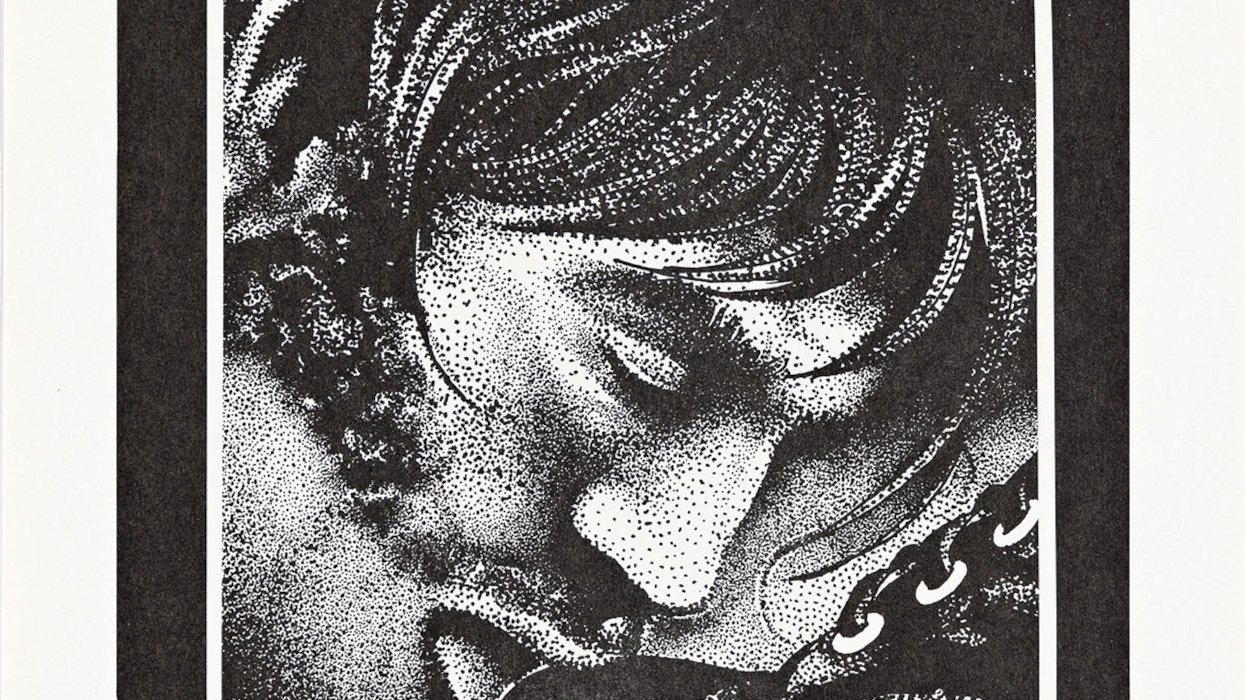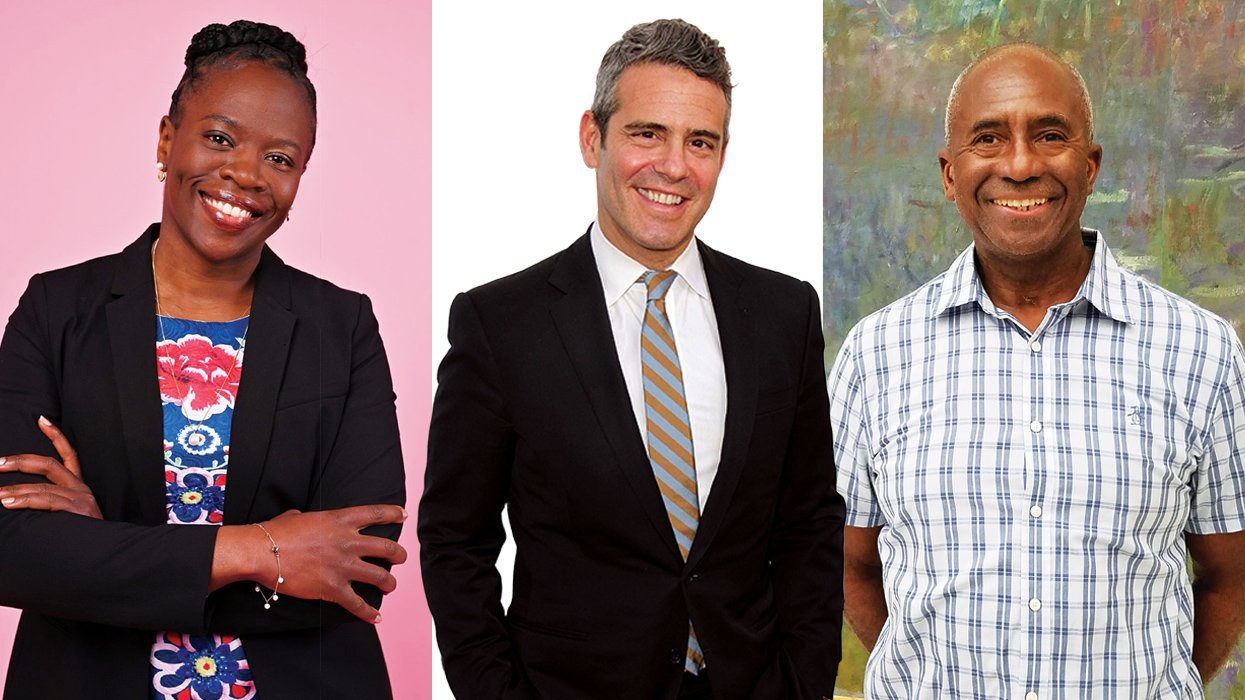
Treatment GuideJust DiagnosedSex & DatingAfrican AmericanStigmaAsk the HIV DocPrEP En EspañolNewsVoicesPrint IssueVideoOut 100
CONTACTCAREER OPPORTUNITIESADVERTISE WITH USPRIVACY POLICYPRIVACY PREFERENCESTERMS OF USELEGAL NOTICE
© 2024 Pride Publishing Inc.
All Rights reserved
All Rights reserved
By continuing to use our site, you agree to our Private Policy and Terms of Use.
A midyear report indicates that as of 2002 the nature of the battle against HIV in this country may have changed forever. The number of annual AIDS diagnoses in the United States increased'rather than continuing its yearly decline'for the first time in almost a decade. Those annual declines made up a trend that was short-lived. Much too short-lived'just under half of the two-decade span of the pandemic. So what happens now? Or, more important, what will we let happen now? We are at a critical set of crossroads in the path of history'the face-off of AIDS care with HIV apathy. Many advocates and activists have been predicting that we were approaching this collision course. Well, welcome to it. Traveling along one avenue, medical science truly has made tremendous strides in getting us to the age where small dosages of antiretrovirals have become easier to take than the handfuls of pills that were the only options just a few years ago. Just as senior editor Bob Adams reveals in this issue in his article 'Antiretrovirals: The Next Generation,' not only do many of these medications carry fewer toxicities than their predecessors, but researchers are striving to get to market only new drugs that will be the easiest and least painful for patients to take. Traveling along an opposing avenue, we have had rampantly growing apathy about HIV'made clear by a few groups. First, we have people who do not think they are susceptible to HIV'that it is a disease that affects only 'those people.' Second, we have people who will tell you that they have decided to have sex in any manner they please to. (Without regard for others' health, much less their own!) And, last, we have people who just do not have a clue. They are easily summed up in a comment made in August by Ronald Valdiserri, the deputy director of the National Center for HIV, STD, and TB Prevention, to the Los Angeles Times: 'The improvements in treatment are wonderful, but unfortunately, it minimizes the threat of HIV and AIDS. People say, 'Isn't that cured? Like syphilis?' ' It should be painfully clear that none of these mind-sets is acceptable. People's inability to empathize about what HIV disease is truly like has been compounded by our country's ideological and financial shift away from strong education messages. Yes, we are, as Valdiserri points out, moving into a world where wonderful anti-HIV medications are being created. And these indeed may be able to make HIV disease manageable rather than a death sentence. The overlooked problem, though, is that a disease that is manageable is quite a leap from a disease that is inconsequential. Furthermore, these medications are expensive and demand lifelong devotion. But how are we to help the generations ahead understand these facts without proper resources'both ideological and financial? I see two possible futures'one where we insist that education and other avenues of support remain open to allow us to thrive or one where we let ourselves be overcome with complacency and trampled by so-called compassionate conservatism. One road leads to a bright future; the other does not. And with the news about AIDS diagnoses starting to increase, we can see that too many people are headed toward a frightening future for every citizen.
Want more breaking equality news & trending entertainment stories?
Check out our NEW 24/7 streaming service: the Advocate Channel!
Download the Advocate Channel App for your mobile phone and your favorite streaming device!
From our Sponsors
Most Popular
Diets that mimic fasting reverse aging: study
March 07 2024 5:28 PM
Before AIDS, gay artist Rex drew hot men on the prowl — then he disappeared
April 11 2024 3:15 PM
The Most Amazing HIV Allies & Advocates of 2023
November 03 2023 12:51 PM
PrEP without a prescription now a reality in California
February 06 2024 8:37 PM
This OnlyFans Star Is Trying to Raise $100K to Fight HIV
December 26 2023 3:05 PM
Injectable HIV treatment, prevention: Everything you need to know
March 26 2024 3:28 PM
The naked Black body takes center stage in this HIV campaign
January 03 2024 1:07 PM
8 dating tips for gay men from a gay therapist
March 21 2024 2:50 PM
Mr. Gay World wants to make sure you're OK
January 02 2024 4:56 PM
Plus: Featured Video
Latest Stories
Giselle Byrd is taking center stage — and helping others do the same
April 10 2024 2:24 PM
Discover endless fun at The Pride Store: Games & electronics for all ages
April 09 2024 4:25 PM
Mean Girls' Daniel Franzese on playing an HIV+ character
April 09 2024 3:57 PM
HIV-positive Air Force, Navy servicemembers victorious in lawsuit
April 09 2024 3:02 PM
Unlocking a new level of beauty with Dr Botanicals' ethical skincare line
April 08 2024 3:40 PM
Unleash your wild side with The Pride Store’s beginner’s guide to kink
April 08 2024 3:35 PM
Why are mpox cases in the U.S. on the rise again?
April 08 2024 1:30 PM
Happy national foreskin day!
April 04 2024 1:45 PM
Adult entertainment icons Derek Kage & Cody Silver lead fight for free speech
April 03 2024 3:06 PM
LGBTQ+ patients twice as likely to face discrimination: survey
April 02 2024 4:57 PM
Spring into The Pride Store’s top new arrivals for April
April 02 2024 4:39 PM
Nashville PD Must Pay HIV-Positive Man Denied a Job
April 01 2024 6:22 PM
Common has a message on how to foster self-love
March 29 2024 7:33 PM
Listen to Dr. Levine: Take syphilis seriously
March 28 2024 6:40 PM
Breaking boundaries in gender-free fashion with Stuzo Clothing
March 27 2024 2:15 PM
Find your perfect fit with gender-inclusive fashion from The Pride Store
March 26 2024 2:16 PM
Sexual assault survivor Stephen Hart uses theater to heal
March 25 2024 5:52 PM
















































































